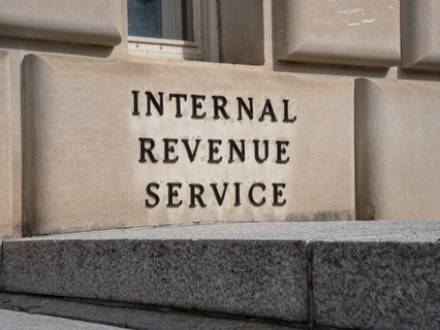IRS May Conduct More Tax Audits for Pass-Through Entities
 The IRS has announced increased efforts to audit certain tax arrangements associated with pass-through entities, including partnerships, LLCs, S corporations, and trusts. These entities are often used by high-income earners and larger companies, and while they offer tax advantages, they can also present complex tax reporting challenges. As the IRS intensifies its oversight, pass-through entities may experience tax audits. By working with a knowledgeable tax attorney, business owners can navigate these audits, resolve concerns raised by the IRS, and mitigate any penalties that may apply.
The IRS has announced increased efforts to audit certain tax arrangements associated with pass-through entities, including partnerships, LLCs, S corporations, and trusts. These entities are often used by high-income earners and larger companies, and while they offer tax advantages, they can also present complex tax reporting challenges. As the IRS intensifies its oversight, pass-through entities may experience tax audits. By working with a knowledgeable tax attorney, business owners can navigate these audits, resolve concerns raised by the IRS, and mitigate any penalties that may apply.
Understanding Pass-Through Entities and Their Tax Benefits
Pass-through entities do not pay corporate income tax directly. Instead, the profits and losses of these businesses "pass through" to the owners, who report them and pay the applicable taxes when filing individual income tax returns. This structure can lead to significant tax savings, since it avoids double taxation at both the corporate and personal levels. However, the unique nature of pass-through taxation also opens the door to potential tax complications and increased IRS scrutiny.
Pass-through entities may face heightened audit risk because of their:
-
Tax Complexity: Pass-through entities often involve complex ownership structures and income allocation arrangements.
-
Deductions and Credits: Certain tax deductions available to pass-through entities can be subject to detailed IRS review.
-
Income Misreporting: The IRS may target arrangements that seem designed to obscure or reduce taxable income.
Tax Issues Unique to Pass-Through Entities
The IRS is increasingly focusing on specific tax issues tied to pass-through entities, especially those with high-income owners or intricate tax structures. These issues often arise because of the complex rules governing income allocation, deductions, and reporting requirements. Common issues for pass-through entities include:
-
Profit and Loss Allocation: For partnerships in particular, the allocation of profits and losses among partners can be complex, especially when different classes of ownership exist. Allocations that disproportionately benefit certain owners may attract IRS scrutiny.
-
Self-Employment Tax: How income is classified—whether as passive or active—can affect tax liabilities for LLCs and S corporations. The IRS may perform audits to ensure accurate classification and reporting.
-
Excess Business Loss Limitations: The IRS monitors pass-through entities for compliance with excess business loss limitations, which cap the amount of deductible business losses for non-corporate taxpayers. Businesses reporting significant losses may be targeted to ensure that their deductions align with IRS regulations.
-
Qualified Business Income (QBI) Deduction: For qualifying pass-through entities, taxpayers may deduct up to 20 percent of qualified business income that is passed through to individual tax returns. This deduction has specific requirements, including limitations based on business type and income level, which the IRS may review closely during audits.
-
Partnership Basis and At-Risk Rules: Partners in a partnership may claim deductions up to their adjusted basis in the partnership, and they must also adhere to at-risk rules. During audits, the IRS may examine whether partners have accurately calculated and reported their basis and at-risk limitations.
Key Issues the IRS May Address in Audits for Pass-Through Entities
Given the IRS's increased focus on high-income taxpayers and complex pass-through structures, certain practices may trigger audits or close examination:
-
Income Shifting and Allocation Structures: The IRS is actively monitoring arrangements that shift income or expenses in ways that could lower tax liabilities improperly.
-
Capital Contributions and Distributions: If capital contributions or distributions to partners or shareholders do not align with reported income, the IRS may investigate to confirm accurate reporting.
-
Passive vs. Active Income Designation: Misclassifying income as passive rather than active (or vice versa) to avoid certain taxes, such as self-employment taxes, is an area of concern for the IRS. Audits may examine whether income classifications comply with IRS guidelines.
-
Transactions with Related Parties: Transactions between pass-through entities and related parties (e.g., family members or affiliated businesses) may be scrutinized to ensure that these transactions were conducted at fair market value and reported correctly.
-
Depreciation and Expense Deductions: Incorrectly claiming depreciation, business expenses, or deductions that are disproportionate to actual business activity can trigger audits, especially if expenses seem excessive or may be unrelated to business operations.
Contact Our San Jose, CA Tax Audit Attorney
As the IRS increases its scrutiny of pass-through entities, businesses and high-income taxpayers may face audits. The San Jose tax lawyer at John D. Teter Law Offices can help taxpayers defend their tax filings and address complex challenges during audits. We can analyze financial records, provide guidance on how to ensure compliance with IRS regulations, and negotiate agreements with the IRS to minimize any penalties that may apply. Call 408-866-1810 today to set up a consultation to learn how our legal team can assist with IRS audits and other related issues.









